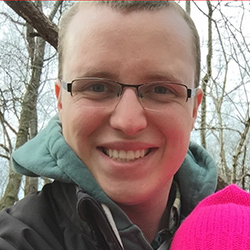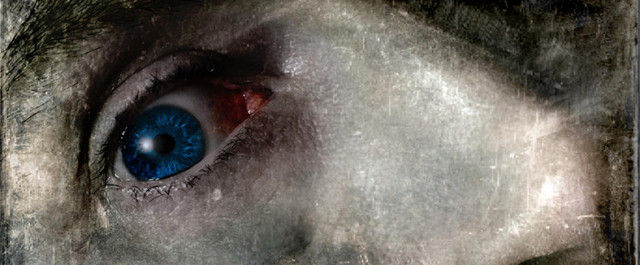Anthony Reese
The life of a writer is a truly terrifying thing. Not in the way most people may think, though. It’s not the general lack of a paycheck. It’s not the anxiety of writer’s block. It’s not the seemingly never-ending stream of editors and agents telling us how not-good-enough we are. It’s something much worse.
I promise, I’m not trying to be dramatic here. There are, undeniably, so many more dangerous professions, countless individuals who truly put their lives at risk on a daily basis. And no matter which way you spin it, writers are simply not among those courageous souls (unless you’re Martha Gellhorn). We sit comfortably inside the four walls of our own homes—or lounge on vintage furniture in ritzy coffeehouses—and we benefit from the luxuries of such a life. Our profession is not typically perilous, and we know it.
But every single day, we do lay at least a part of ourselves on the line for that which we cherish most. To write is to expose oneself to the masses, to reveal the most intimate parts of the mind to the critics and the naysayers of the world. And that takes courage.
If you are a writer to any degree, you understand the fear of such susceptibility. And what’s more, you understand the frustration of realizing that most of the world looks down upon you. But I’ve recently realized we are up against something so much more terrifying. I came across this quote a few days ago by Joshua Wolf Shenk, author of Powers of Two: How Relationships Drive Creativity and essayist for such publications as The Atlantic, The New Yorker, and The New York Times. Here’s his take on the dangers of writing:
Get through a draft as quickly as possible. Hard to know the shape of the thing until you have a draft. Literally, when I wrote the last page of my first draft of Lincoln’s Melancholy I thought, Oh, shit, now I get the shape of this. But I had wasted years, literally years, writing and re-writing the first third to first half. The old writer’s rule applies: Have the courage to write badly.
Although he’s talking about something else entirely, Shenk clearly understands that the greatest fear a writer faces is the fear of his own criticism. Sure, it’s disheartening to weather the world’s harsh responses to your writing, but what’s worse: disappointing people you’ve never met or disappointing yourself? I believe it’s the latter.
I uploaded a blog post sometime last week in which I discussed why I hate—or should I say hated, past tense—the process of editing. For the longest time, I believed it was because of some lack of self-discipline, that when it came down to it, I didn’t want to devote the time necessary to transforming my first draft into something great. But then it hit me: I’m not dreading the work itself; I’m dreading the act of reading the pitiful attempts at prose I concocted during my first stint in front of the computer screen. And that fear controls so many of my writing habits.
I can’t tell you how many times I’ve sat in front of a blank screen, failing to type out a single word for hours at a time. It’s not due to writer’s block, as many like to say; I usually know exactly what I want to write. It’s fear that keeps me from writing, and that’s it. Fear that this one last disappointment will be the end to my inspiration, my passion. Can it really be such a fragile thing? I’m inclined to say no, but my actions, my anxieties suggest otherwise.
Just as I think I might drown in the depression of all this, I come full circle to the beginning of Shenk’s quote. He succeeded in overcoming his fear, and hundreds of thousands before him have done the same, so what’s stopping me? What’s stopping you?
Raymond Carver said, “You’ve got to work with your mistakes until they look intended,” and I don’t think there’s any better summary of the editing process. But you never get there until you put down that first draft. Take courage in your writing today, tomorrow, this week. Have the fortitude to write badly, and know that the real challenge of writing comes afterwards, in the editing and revising, the fine-tuning, the molding of your idea. Trust your gut first, though, and do what you do best: write.
 Among many things, Anthony Reese is a father, a husband, a travel addict, and a writer. He has a Bachelor’s degree in interdisciplinary studies with concentrations in English and print media from North Greenville University and is currently pursuing an MFA in Creative Writing at Converse College.
Among many things, Anthony Reese is a father, a husband, a travel addict, and a writer. He has a Bachelor’s degree in interdisciplinary studies with concentrations in English and print media from North Greenville University and is currently pursuing an MFA in Creative Writing at Converse College.
